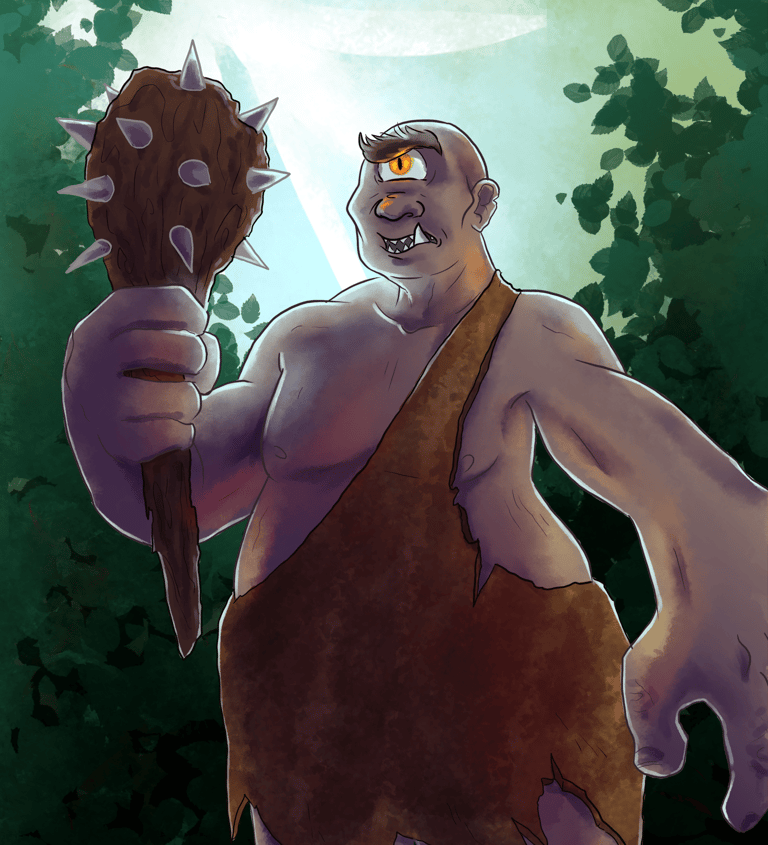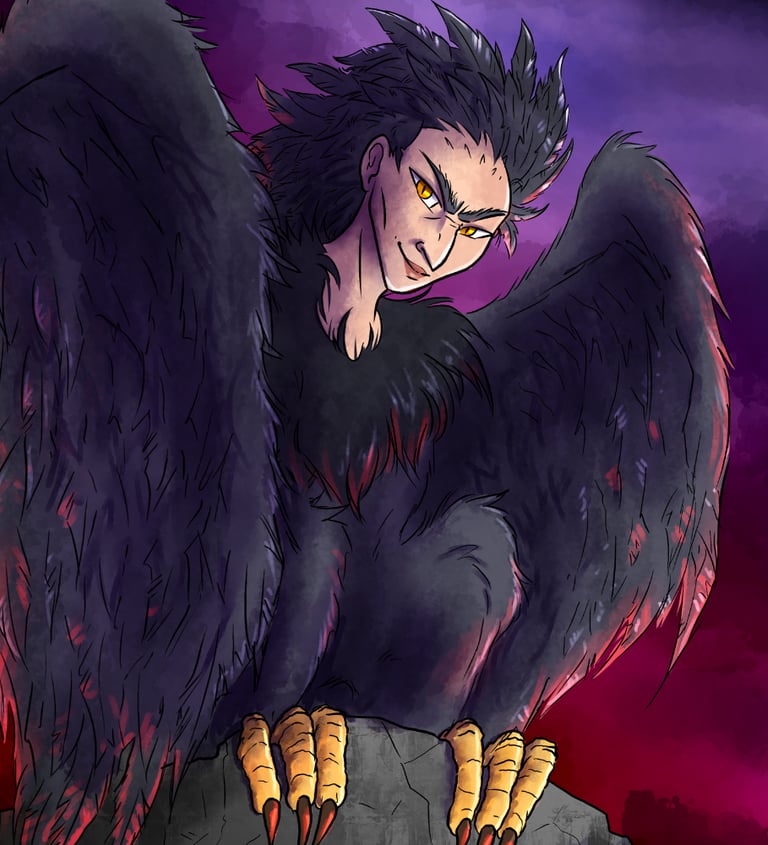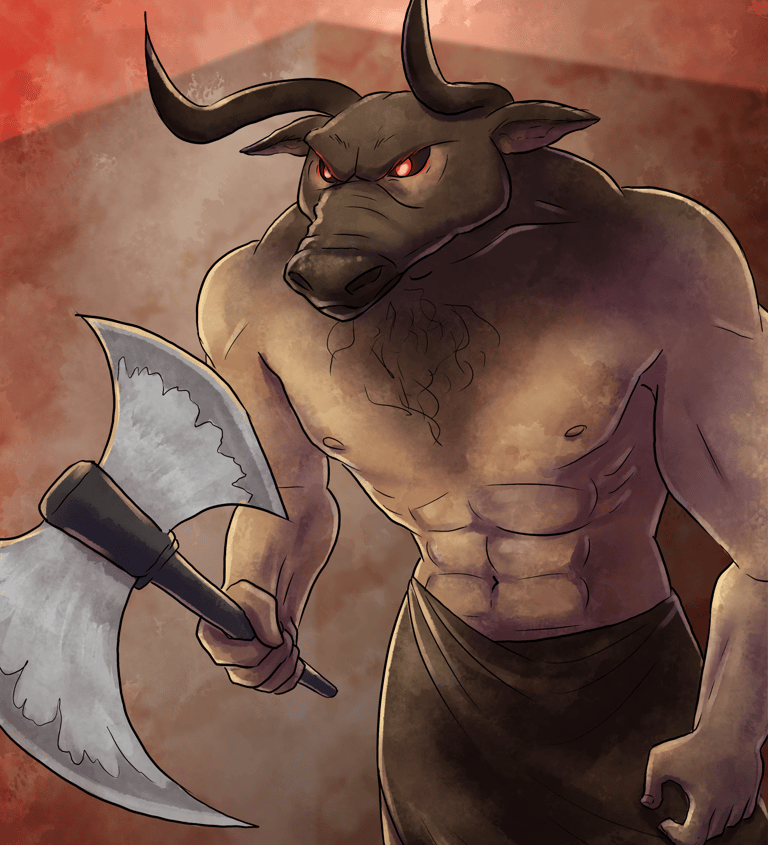Greek Mythology
Echoes of Olympus: The Myths of Greece
Greek mythology is a collection of myths and legends that explain the origins of the world, the gods, and human life, deeply intertwined with the culture of ancient Greece. It begins with Chaos, the primordial void, followed by the emergence of the Titans, who were overthrown by the Olympian gods led by Zeus, the god of the sky and king of the gods. The pantheon includes Poseidon, god of the sea; Hades, ruler of the underworld; Athena, goddess of wisdom; and Apollo, god of the sun and arts. Central themes include heroism, love, betrayal, and the struggle between fate and free will. The myths often involve legendary heroes like Heracles and Odysseus, whose adventures shaped human destiny. Greek mythology ends not with an apocalypse but with humanity’s integration into a world governed by the gods’ eternal influence.
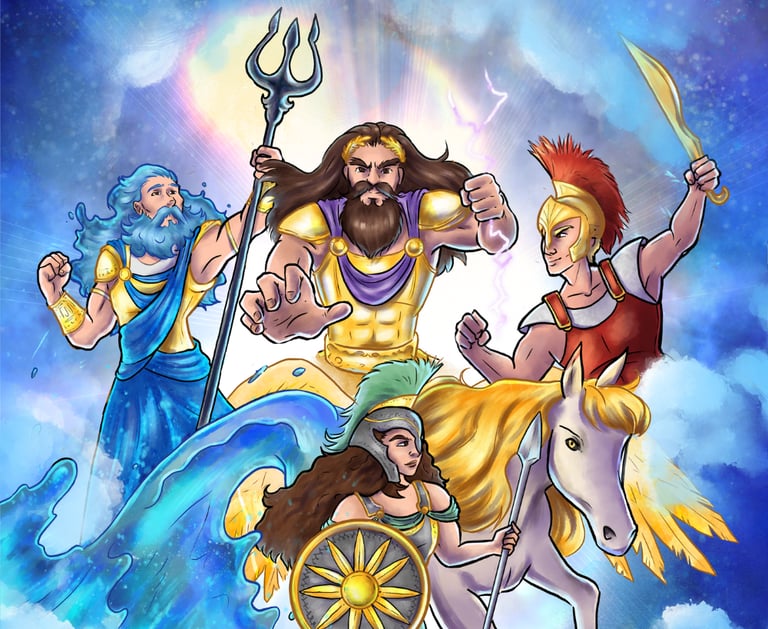

Zeus
Zeus, the king of the Greek gods, is the ruler of the sky and wielder of thunder and lightning. Born to the Titans Cronus and Rhea, he overthrew his father to free his siblings and establish the reign of the Olympians. Known for his power and authority, Zeus upholds justice and order among gods and mortals. Despite his wisdom, he is infamous for his numerous affairs, which led to the birth of many demigods and heroes, like Hercules. As the protector of oaths and hospitality, Zeus embodies both the might and flaws of leadership, reigning from Mount Olympus.
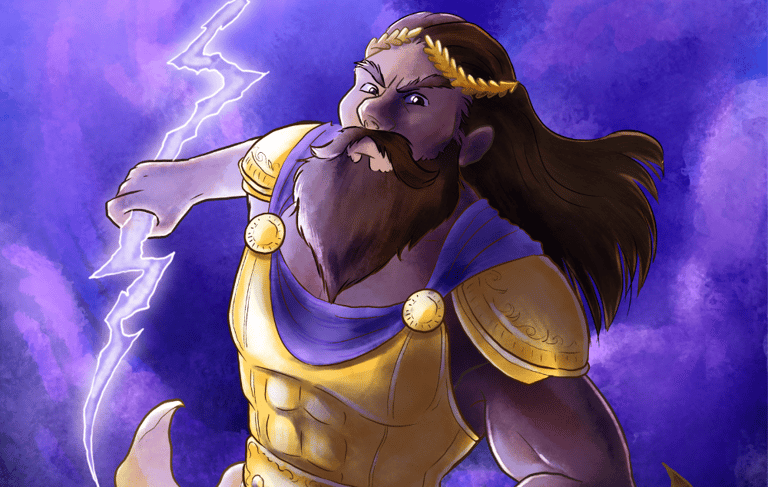

Poseidon
Poseidon, the Greek god of the sea, earthquakes, and horses, is a powerful and tempestuous figure. As the brother of Zeus and Hades, he rules over the oceans with his trident, commanding storms and calm waters alike. Known for his volatile temper, Poseidon is both a creator and destroyer, shaping the land and seas. He is revered as the protector of sailors and seafarers but also feared for his ability to unleash devastating tsunamis and quakes. Poseidon’s myths often reflect the dual nature of the sea: life-giving yet unpredictable and dangerous.
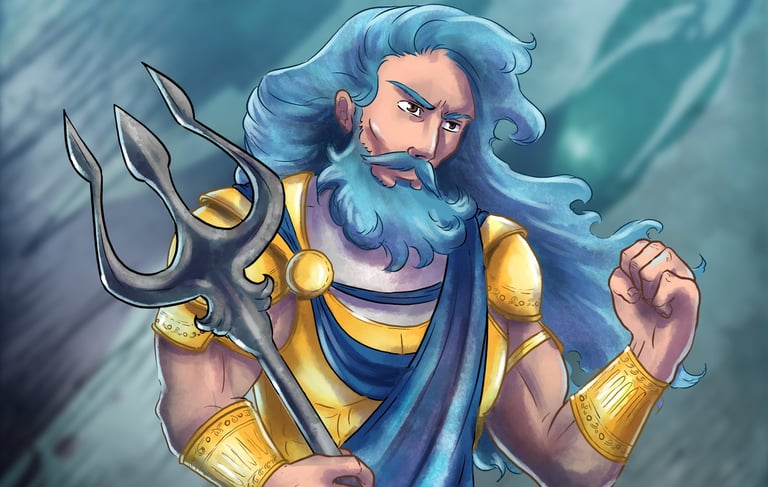

Hades
Hades, the Greek god of the underworld, is the ruler of the realm of the dead and the guardian of its treasures. As the brother of Zeus and Poseidon, he oversees the afterlife, ensuring the balance of life and death. Though often misunderstood as malevolent, Hades is a just and impartial deity, maintaining order in his domain. He is famously associated with the abduction of Persephone, who becomes his queen and brings the cycle of seasons to the mortal world. Hades embodies inevitability and the mystery of the afterlife, commanding respect rather than fear.


Athena
Athena, the Greek goddess of wisdom, war strategy, and craftsmanship, is one of the most revered Olympian deities. Born fully armed from Zeus's forehead, she embodies intelligence, courage, and justice. Unlike Ares, who represents brute force, Athena is associated with tactical warfare and the defense of cities. She is the patron goddess of Athens, symbolized by the owl and the olive tree. Known for aiding heroes like Odysseus and Perseus, Athena represents the power of intellect and reason, standing as a protector of civilization and order.

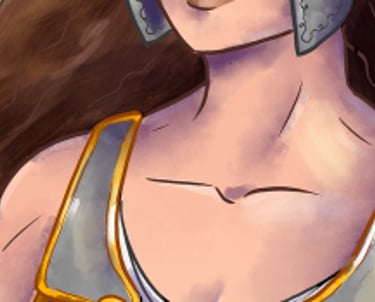
Ares
Ares, the Greek god of war, embodies the chaos and brutality of battle. Unlike Athena, who represents strategic warfare, Ares is associated with raw violence and bloodlust. The son of Zeus and Hera, he is both feared and disliked by gods and mortals for his impulsive nature. Despite his fearsome reputation, Ares is often defeated in myths, showing the consequences of unchecked aggression. He represents the darker, destructive side of conflict, a necessary but volatile force in the balance of the cosmos.

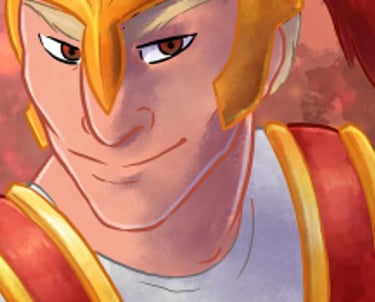
Other beings from Greek mythology
Greek mythology is filled with fascinating creatures alongside its gods. The Cyclops, one-eyed giants, are master craftsmen who forged Zeus's thunderbolts. Harpies, part-woman, part-bird beings, are swift and menacing, often serving as agents of divine punishment. The Minotaur, a fearsome half-man, half-bull, dwelled in the labyrinth of Crete, embodying the themes of human ingenuity and the consequences of hubris. These beings add depth and wonder to Greek myths, reflecting both the beauty and terror of the ancient world.
